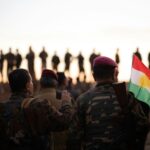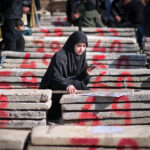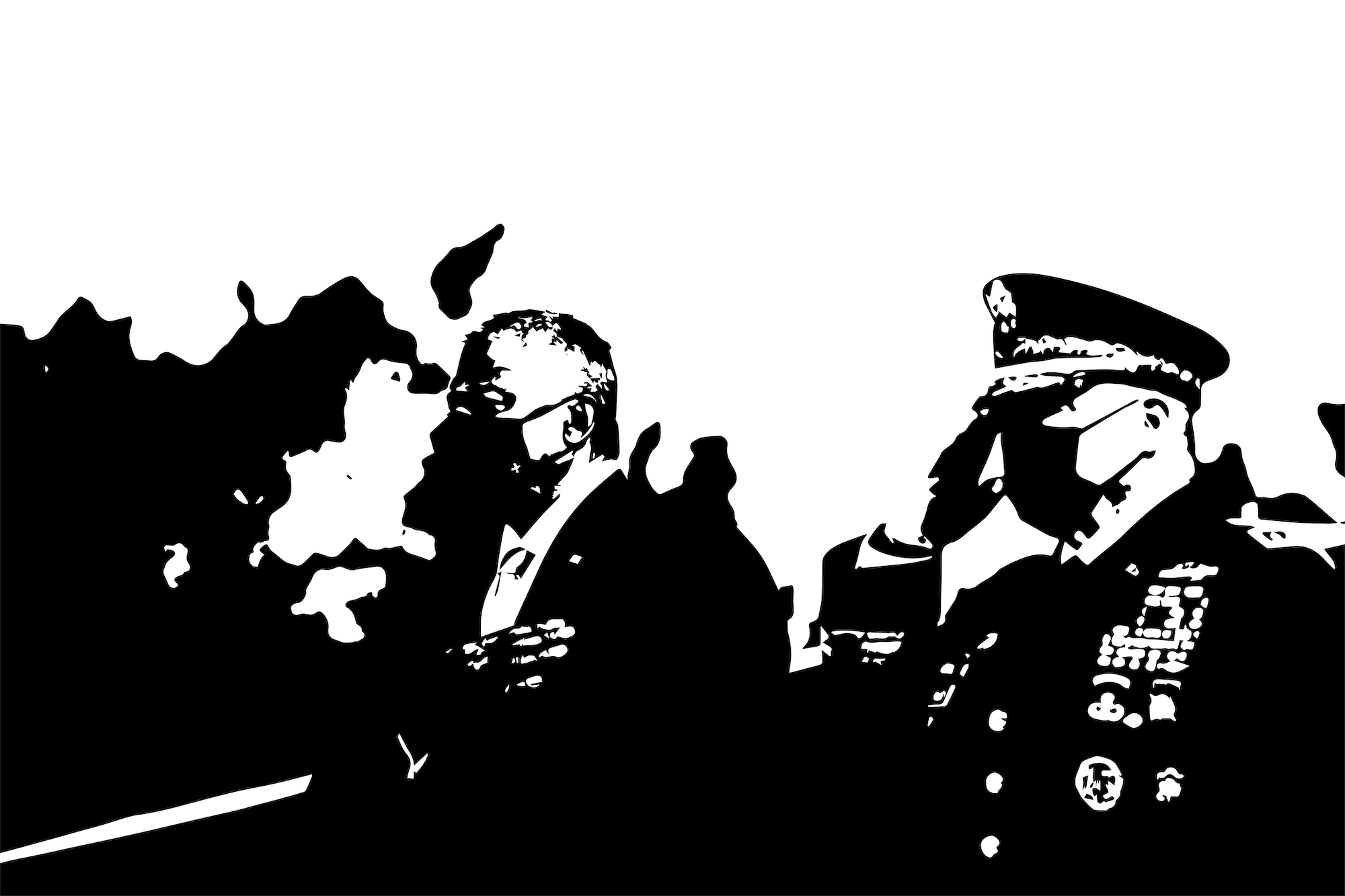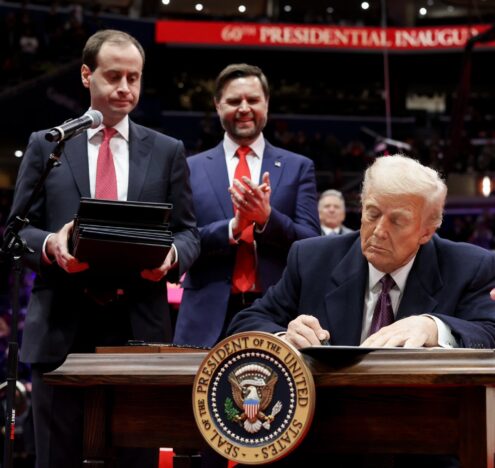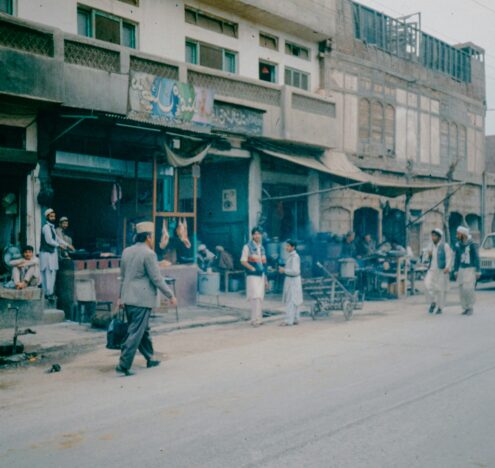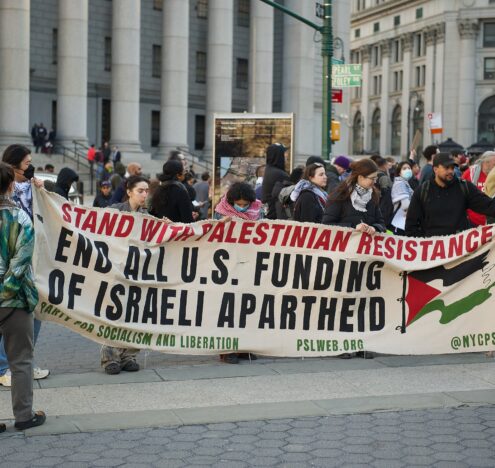We have been a nation at war — sort of. Due to the longest wars in American history being shouldered by a tiny percentage of the population, the vital civil-military relationship has become strained since 9/11.
Following the 9/11 attacks, military enlistments increased only marginally during the remainder of 2001, and stabilized after a few months. At the time, the military services reported a temporary spike in enlistment inquiries, yet few followed through. Recent events, such as a large military presence monitoring the June 2020 protests across the country, politicization of the armed forces leading up to the 2020 presidential election, and the response of the Department of Defense during the Jan. 6 attack on the US Capitol, indicate that there is a civil-military disconnect at the highest levels. Yet, there is a deeper divide, between the military and the American public, indicating a breakdown between us and those who serve us. Two groups serve as good examples of this breakdown: veterans and military families.
Post-9/11 veterans have some significant differences compared to previous generations of veterans. Those who served in these past 20 years are more likely than the general veteran population to have been deployed, seen combat, and experienced emotional trauma. In addition to their in-service experiences, the transition back to civilian life is more isolated than the experience of pre-9/11 veterans, as few in their communities and workplaces share in the experience of military service. A common complaint from veterans seeking civilian employment is an employer market unfamiliar with the military experience, a societal change from previous generations of veterans. A follow-on effect to the isolation of the military experience in the US has been the perception of the general public by veterans, who consider themselves to be more patriotic than other Americans.
For military families, the civil-military relationship since 9/11 has split them between two worlds. On the one hand, most military family members are themselves civilians, without the in-depth military experience that the service member goes through. However, their proximity to the military, their role in the overall military community, and military decisions impact their lives dramatically, isolating them from the rest of civilian society who live far removed from military conflicts. Perhaps the biggest impact was the pace of deployments for service members. As of 2020, 2.77 million service members have been deployed 5.4 million times collectively since 9/11 and 40% of servicemembers have deployed more than once in their careers. Post-9/11 deployments are both longer and more frequent than previous conflicts, impacting their families in a significant way. For example, during the surge of 2007, deployments were extended for as long as 15 months.
Frequent deployments, the challenges of parenting children with a deployed parent, maintaining employment as a military spouse, and frequent relocations all take a dramatic toll on the families of servicemembers. At the same time, the degradation of civil-military relations on the societal level means that military families are both more isolated in their experiences as well as geographically from their civilian peers. Veterans can often feel similarly disconnected from the general public.
What does this all mean going forward and beyond the 9/11 attacks?
ON A PEDESTAL
Civil-military relations is not limited to the high-level political relationships between elected and appointed officials and military brass. As a vital element to a free and open society, the media connects the American public- and electorate- to current events. The relationship with the press for leaders on military matters shows a great deal about the societal relationship to the military — and currently, it seems like the US military has been set on a pedestal.
One such example is the 2019 Washington Post publication of “The Afghanistan Papers,” a series of evaluations of the war in Afghanistan that had been conducted by the Special Inspector General for Afghanistan Reconstruction (SIGAR). The documents were retrieved by journalists following a Freedom of Information Act request. This reporting effectively laid out how the communications with the American public from officials at the highest levels of government were at odds with the military assessments on the ground. Both military and civilian leaders misrepresented the truth about the war effort to the American people.
The military is consistently rated the most trusted institution in the country, demonstrating that the society has put the military on a pedestal at the expense of other institutions that have let them down.
As a result of the shock of the 9/11 attack, and the following long-term military conflicts in Afghanistan and Iraq, military leadership regained a new prominence at the highest levels of American government. However, both civilian and military leaders did not tell the truth about the ongoing conflicts to the media — and therefore, to the American people. Just as significantly, the most popular media outlets did not effectively push back on the updates coming from the military and the government, rarely challenging the overly optimistic characterizations of the war and chances for success. Furthermore, following the release of the Afghanistan papers, little changed in public opinion of the war and the revelations were not highly distributed and covered, demonstrating a societal disinterest in the then–19-year war. The current debate about the role of Chairman of the Joint Chiefs of Staff General Mark Milley in the final weeks of the Trump administration demonstrates the real-world ramifications of civil-military discord at the highest levels.
The relationship between the military and the public it serves says a great deal about the civil-military relationship, and often directly explains decisions made at the highest level. Since the 9/11 attacks, the American public has been overwhelmingly proud of the troops serving in conflict zones, while aware of the much greater burden carried by military members and their families. Geographically isolated domestic military bases separate the military community from large civilian population centers, decreasing the chances for interactions and overall civil-military relations. Due to the distance from the US, the long duration of the conflicts, and the lack of personal connection to the individuals risking their lives, the military conflicts that followed 9/11 have had little to no impact on the lives of non-military affiliated Americans.
The military is consistently rated the most trusted institution in the country, demonstrating that society has put the military on a pedestal at the expense of other institutions that have let them down. Of great concern to the civil-military relationship is the enormous disparity in trust between the military and civilian institutions of government. The most recent 2021 data shows that the percentage of the American people who have “a great deal’ or “quite a lot” of confidence in the military is significantly higher than all three branches of the federal government: 69% for the military compared to 38%, 36%, and 12% for the confidence in the presidency, Congress, and the Supreme Court, respectively. Similar data shows a concerning trend over time from the attacks on 9/11. Since 2001, out of those four federal government institutions, only the military increased its confidence rating, while all three others dropped. On the other hand, the increased reliance by the military on the reserve component since 9/11 has broadened the span of civilians who have interacted with post-9/11 servicemembers and veterans.
In addition to the lack of personal connections between the military community and the civilian public, the societal civil-military relationship is strained by the lack of financial consequences to war. In a departure from previous major conflicts, fiscal policy during the post-9/11 wars was set separately from the war effort. While during World War I, World War II, and even the Vietnam War, civilian Americans were tied to the ongoing conflicts through increased taxes that funded the war. World War I was partially financed through tax increases of 1-2%, the modern system of income tax was introduced to assist with World War II expenses, and the Vietnam War introduced a ten percent “surcharge” on income tax — a politically unpopular move. Without increased taxes, the wars were even more remote to American society.
VALUED, YET ISOLATED
The breakdown of the civil-military relationship since 9/11, therefore, is not solely the result of one experience. Post-9/11 veterans’ experiences are quite different from previous generations of military service members, as they returned to a society with the least exposure to military service in history, and hence a more pronounced ambivalence to a veteran’s sacrifices. The family members who love and support American troops have had to straddle two worlds: A civilian population that doesn’t understand them, and a military system that greatly affects them. Together, both contribute to the sense of alienation among military-affiliated individuals in society.
Societal civil-military relations are almost nonexistent, resulting in fewer impacts on elected officials’ decision making. Problems at the elite level between military and civilian officials have a self-fulfilling effect on the overall civil-military relationship. As the military remains the most trusted institution in the country compared to the civilian branches that are viewed with suspicion, the American public — as a society and through their elected representatives — defer to the military on issues that are the constitutional responsibility of civilian government.
In the 20 years since 9/11, the US military has become more isolated and yet more valued by the public than ever before, a dangerous situation for a functioning democracy. When the institutions that are responsive to public opinion through elections — Congress and the White House — abdicate their leadership responsibilities to a professional military unaccountable to the public, the American system of checks and balances no longer functions properly. Yet, politicians often defer to the military out of a sense that the public would punish them electorally for failing to “support the troops,” regardless of the merits of individual strategic decisions. In order to improve the relationship between the military and the civilian society, several changes need to happen.
First, Congress should take back its constitutional responsibilities from the executive branch and insist on a reduction of “undeclared wars” that bypass their constitutional responsibility to declare war officially. The armed forces should expand their recruiting presence outside of traditionally military-inclined regions, in order to better represent and integrate into the nation. Current recruitment patterns rely on the Southeast Atlantic states as the region producing the most military recruits per capita. Compared to the Northeast states that have the lowest recruitment rates in the country, the military burden is felt very differently across the country, deepening the civil-military divide in places without a strong military presence. Finally, we as a society must examine our relationship to the civilian government and separate partisan feelings about elected representatives from the relationship between the civilian population and various government agencies and public servants across the country. Actions, such as intentionally integrating military families into civilian neighborhoods through social, professional, and virtual connections and developing programs between the military community and the surrounding schools would help to tackle the interpersonal dynamic of civil-military relations. Civil-military relations is not just a remote discipline for the highest levels of government; it affects the fabric of our democracy.
The civil-military relationship will only work when the civilian government is recognized for service alongside the armed forces, where each is valued equally. The best way to do so is to take the military off of its pedestal and work on closing the elite and societal gaps between servicemembers and the American public. There’s no better time to do that than now.
Nathalie Grogan is a Research Assistant in the Military, Veterans, and Society Program at the Center for a New American Security (CNAS) in Washington, DC.
“The Long Tunnel” is a series of articles reflecting on the impact of Sept. 11 and how it has shaped the world we live in today. You can read more in the series here.










